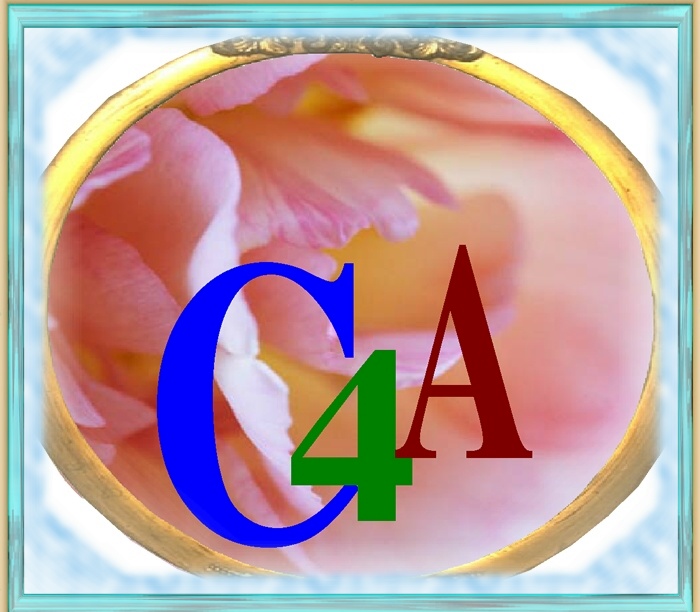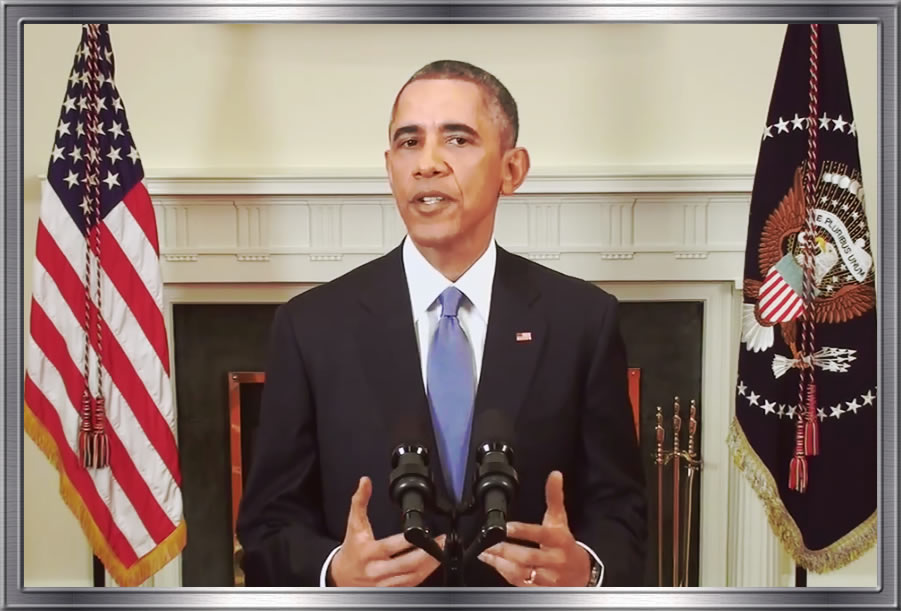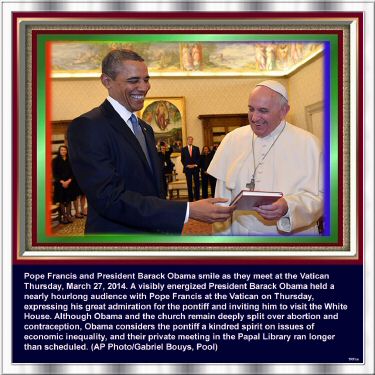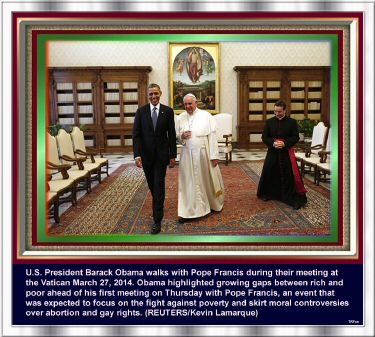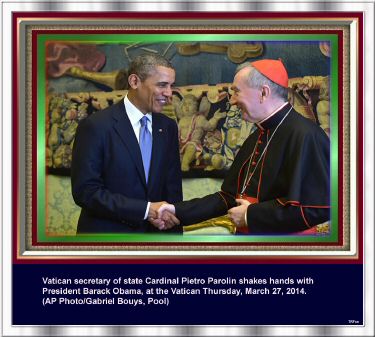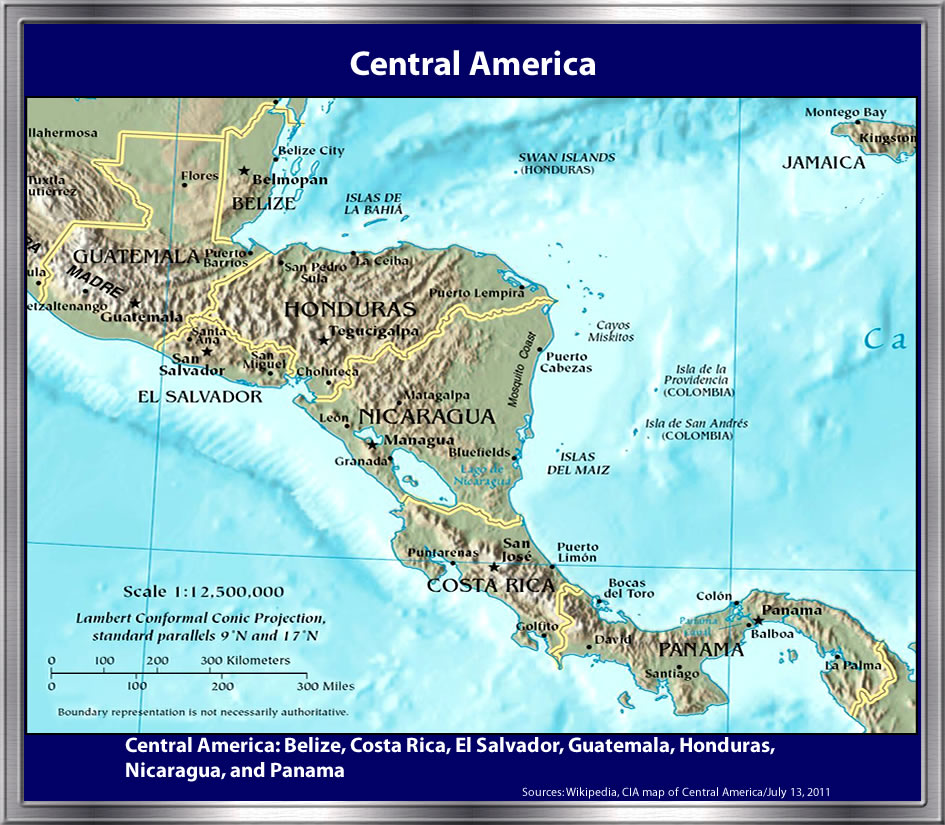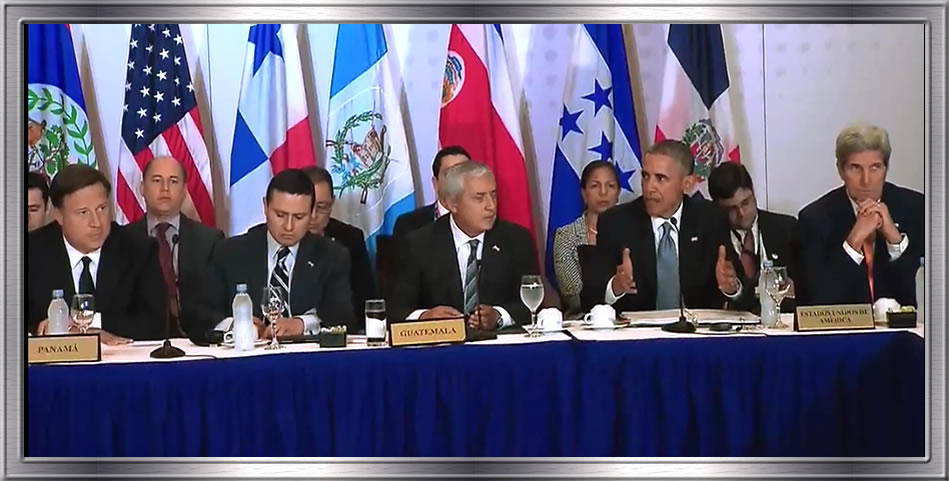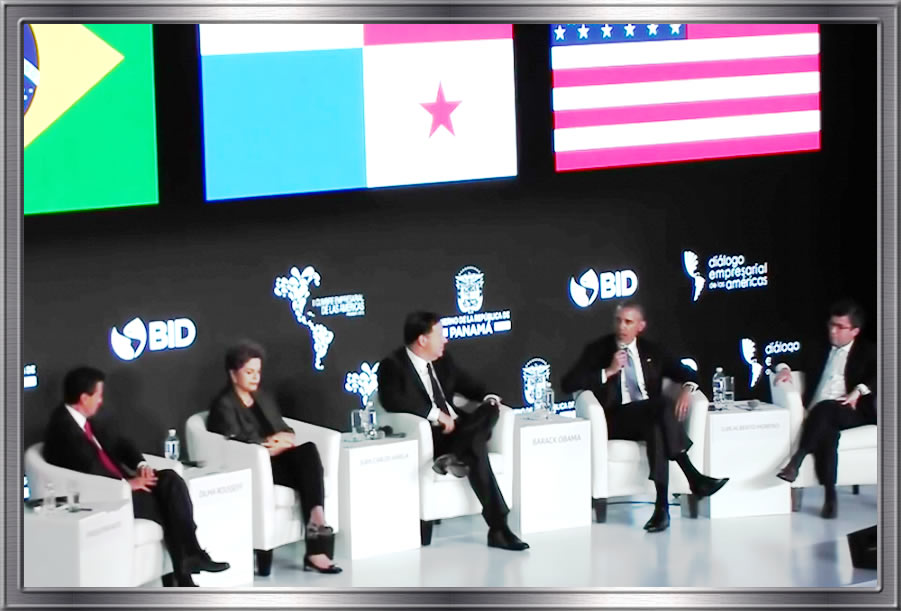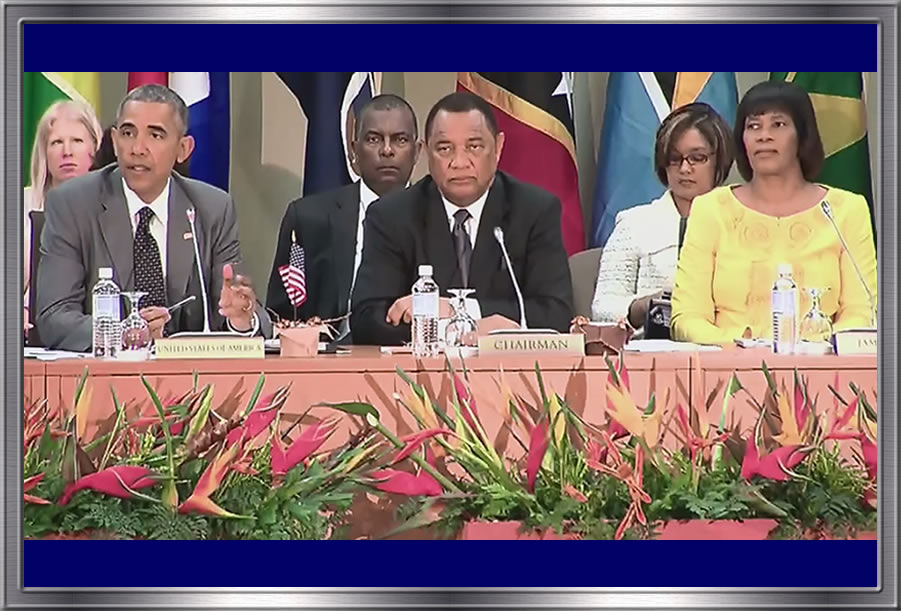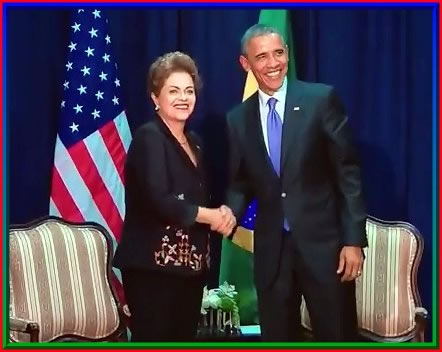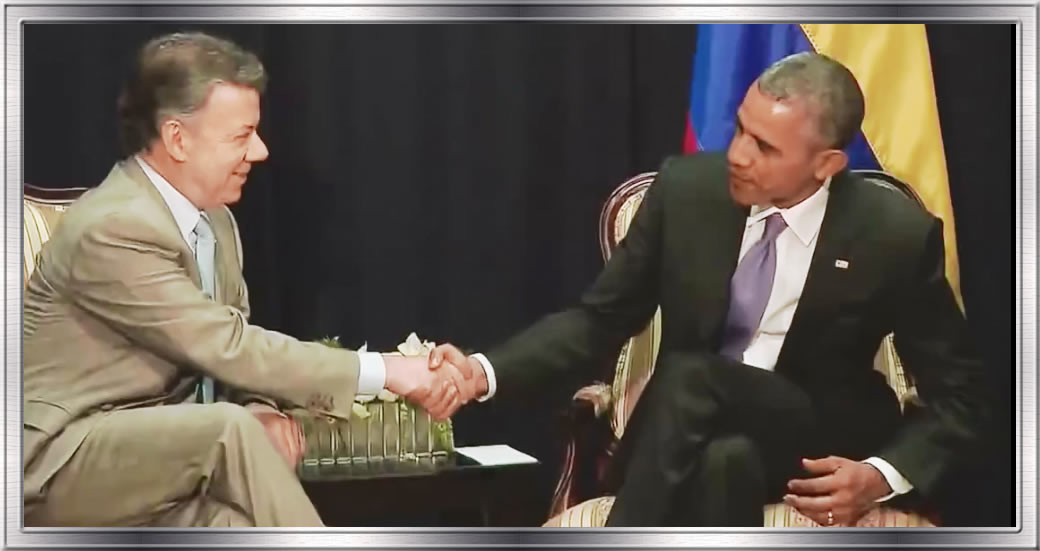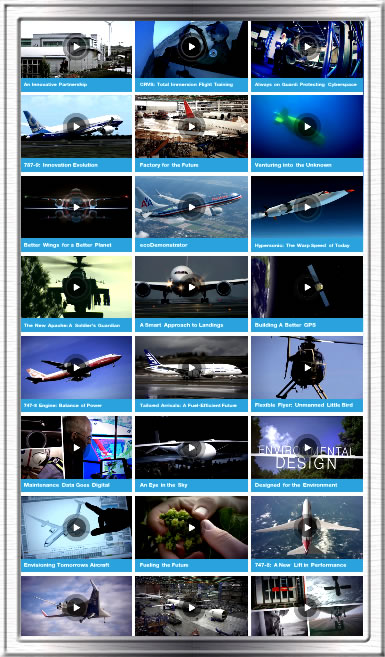US-CUBA HISTORIC MOMENT
U.S. President Obama Meets with President Castro in CUBA



Remarks by President Obama to the People of Cuba
Gran Teatro de la Habana
Havana, Cuba
|
For Immediate Release |
March 22, 2016 |
|
|
10:10 A.M. CST PRESIDENT OBAMA: Thank you. (Applause.) Muchas gracias. Thank you so much. Thank you very much. President Castro, the people of Cuba, thank you so much for the warm welcome that I have received, that my family have received, and that our delegation has received. It is an extraordinary honor to be here today. Before I begin, please indulge me. I want to comment on the terrorist attacks that have taken place in Brussels. The thoughts and the prayers of the American people are with the people of Belgium. We stand in solidarity with them in condemning these outrageous attacks against innocent people. We will do whatever is necessary to support our friend and ally, Belgium, in bringing to justice those who are responsible. And this is yet another reminder that the world must unite, we must be together, regardless of nationality, or race, or faith, in fighting against the scourge of terrorism. We can -- and will -- defeat those who threaten the safety and security of people all around the world. To the government and the people of Cuba, I want to thank you for the kindness that you’ve shown to me and Michelle, Malia, Sasha, my mother-in-law, Marian. “Cultivo una rosa blanca.” (Applause.) In his most famous poem, Jose Marti made this offering of friendship and peace to both his friend and his enemy. Today, as the President of the United States of America, I offer the Cuban people el saludo de paz. (Applause.) Havana is only 90 miles from Florida, but to get here we had to travel a great distance -- over barriers of history and ideology; barriers of pain and separation. The blue waters beneath Air Force One once carried American battleships to this island -- to liberate, but also to exert control over Cuba. Those waters also carried generations of Cuban revolutionaries to the United States, where they built support for their cause. And that short distance has been crossed by hundreds of thousands of Cuban exiles -- on planes and makeshift rafts -- who came to America in pursuit of freedom and opportunity, sometimes leaving behind everything they owned and every person that they loved. Like so many people in both of our countries, my lifetime has spanned a time of isolation between us. The Cuban Revolution took place the same year that my father came to the United States from Kenya. The Bay of Pigs took place the year that I was born. The next year, the entire world held its breath, watching our two countries, as humanity came as close as we ever have to the horror of nuclear war. As the decades rolled by, our governments settled into a seemingly endless confrontation, fighting battles through proxies. In a world that remade itself time and again, one constant was the conflict between the United States and Cuba. I have come here to bury the last remnant of the Cold War in the Americas. (Applause.) I have come here to extend the hand of friendship to the Cuban people. (Applause.) I want to be clear: The differences between our governments over these many years are real and they are important. I’m sure President Castro would say the same thing -- I know, because I’ve heard him address those differences at length. But before I discuss those issues, we also need to recognize how much we share. Because in many ways, the United States and Cuba are like two brothers who’ve been estranged for many years, even as we share the same blood. We both live in a new world, colonized by Europeans. Cuba, like the United States, was built in part by slaves brought here from Africa. Like the United States, the Cuban people can trace their heritage to both slaves and slave-owners. We’ve welcomed both immigrants who came a great distance to start new lives in the Americas. Over the years, our cultures have blended together. Dr. Carlos Finlay’s work in Cuba paved the way for generations of doctors, including Walter Reed, who drew on Dr. Finlay’s work to help combat Yellow Fever. Just as Marti wrote some of his most famous words in New York, Ernest Hemingway made a home in Cuba, and found inspiration in the waters of these shores. We share a national past-time -- La Pelota -- and later today our players will compete on the same Havana field that Jackie Robinson played on before he made his Major League debut. (Applause.) And it's said that our greatest boxer, Muhammad Ali, once paid tribute to a Cuban that he could never fight -- saying that he would only be able to reach a draw with the great Cuban, Teofilo Stevenson. (Applause.) So even as our governments became adversaries, our people continued to share these common passions, particularly as so many Cubans came to America. In Miami or Havana, you can find places to dance the Cha-Cha-Cha or the Salsa, and eat ropa vieja. People in both of our countries have sung along with Celia Cruz or Gloria Estefan, and now listen to reggaeton or Pitbull. (Laughter.) Millions of our people share a common religion -- a faith that I paid tribute to at the Shrine of our Lady of Charity in Miami, a peace that Cubans find in La Cachita. For all of our differences, the Cuban and American people share common values in their own lives. A sense of patriotism and a sense of pride -- a lot of pride. A profound love of family. A passion for our children, a commitment to their education. And that's why I believe our grandchildren will look back on this period of isolation as an aberration, as just one chapter in a longer story of family and of friendship. But we cannot, and should not, ignore the very real differences that we have -- about how we organize our governments, our economies, and our societies. Cuba has a one-party system; the United States is a multi-party democracy. Cuba has a socialist economic model; the United States is an open market. Cuba has emphasized the role and rights of the state; the United States is founded upon the rights of the individual. Despite these differences, on December 17th 2014, President Castro and I announced that the United States and Cuba would begin a process to normalize relations between our countries. (Applause.) Since then, we have established diplomatic relations and opened embassies. We've begun initiatives to cooperate on health and agriculture, education and law enforcement. We've reached agreements to restore direct flights and mail service. We've expanded commercial ties, and increased the capacity of Americans to travel and do business in Cuba. And these changes have been welcomed, even though there are still opponents to these policies. But still, many people on both sides of this debate have asked: Why now? Why now? There is one simple answer: What the United States was doing was not working. We have to have the courage to acknowledge that truth. A policy of isolation designed for the Cold War made little sense in the 21st century. The embargo was only hurting the Cuban people instead of helping them. And I've always believed in what Martin Luther King, Jr. called “the fierce urgency of now” -- we should not fear change, we should embrace it. (Applause.) That leads me to a bigger and more important reason for these changes: Creo en el pueblo Cubano. I believe in the Cuban people. (Applause.) This is not just a policy of normalizing relations with the Cuban government. The United States of America is normalizing relations with the Cuban people. (Applause.) And today, I want to share with you my vision of what our future can be. I want the Cuban people -- especially the young people -- to understand why I believe that you should look to the future with hope; not the false promise which insists that things are better than they really are, or the blind optimism that says all your problems can go away tomorrow. Hope that is rooted in the future that you can choose and that you can shape, and that you can build for your country. I'm hopeful because I believe that the Cuban people are as innovative as any people in the world. In a global economy, powered by ideas and information, a country’s greatest asset is its people. In the United States, we have a clear monument to what the Cuban people can build: it’s called Miami. Here in Havana, we see that same talent in cuentapropistas, cooperatives and old cars that still run. El Cubano inventa del aire. (Applause.) Cuba has an extraordinary resource -- a system of education which values every boy and every girl. (Applause.) And in recent years, the Cuban government has begun to open up to the world, and to open up more space for that talent to thrive. In just a few years, we've seen how cuentapropistas can succeed while sustaining a distinctly Cuban spirit. Being self-employed is not about becoming more like America, it’s about being yourself. Look at Sandra Lidice Aldama, who chose to start a small business. Cubans, she said, can “innovate and adapt without losing our identity…our secret is in not copying or imitating but simply being ourselves.” Look at Papito Valladeres, a barber, whose success allowed him to improve conditions in his neighborhood. “I realize I’m not going to solve all of the world’s problems,” he said. “But if I can solve problems in the little piece of the world where I live, it can ripple across Havana.” That’s where hope begins -- with the ability to earn your own living, and to build something you can be proud of. That’s why our policies focus on supporting Cubans, instead of hurting them. That’s why we got rid of limits on remittances -- so ordinary Cubans have more resources. That’s why we’re encouraging travel -- which will build bridges between our people, and bring more revenue to those Cuban small businesses. That’s why we’ve opened up space for commerce and exchanges -- so that Americans and Cubans can work together to find cures for diseases, and create jobs, and open the door to more opportunity for the Cuban people. As President of the United States, I’ve called on our Congress to lift the embargo. (Applause.) It is an outdated burden on the Cuban people. It's a burden on the Americans who want to work and do business or invest here in Cuba. It's time to lift the embargo. But even if we lifted the embargo tomorrow, Cubans would not realize their potential without continued change here in Cuba. (Applause.) It should be easier to open a business here in Cuba. A worker should be able to get a job directly with companies who invest here in Cuba. Two currencies shouldn’t separate the type of salaries that Cubans can earn. The Internet should be available across the island, so that Cubans can connect to the wider world -- (applause) -- and to one of the greatest engines of growth in human history. There’s no limitation from the United States on the ability of Cuba to take these steps. It’s up to you. And I can tell you as a friend that sustainable prosperity in the 21st century depends upon education, health care, and environmental protection. But it also depends on the free and open exchange of ideas. If you can’t access information online, if you cannot be exposed to different points of view, you will not reach your full potential. And over time, the youth will lose hope. I know these issues are sensitive, especially coming from an American President. Before 1959, some Americans saw Cuba as something to exploit, ignored poverty, enabled corruption. And since 1959, we’ve been shadow-boxers in this battle of geopolitics and personalities. I know the history, but I refuse to be trapped by it. (Applause.) I’ve made it clear that the United States has neither the capacity, nor the intention to impose change on Cuba. What changes come will depend upon the Cuban people. We will not impose our political or economic system on you. We recognize that every country, every people, must chart its own course and shape its own model. But having removed the shadow of history from our relationship, I must speak honestly about the things that I believe -- the things that we, as Americans, believe. As Marti said, “Liberty is the right of every man to be honest, to think and to speak without hypocrisy.” So let me tell you what I believe. I can't force you to agree, but you should know what I think. I believe that every person should be equal under the law. (Applause.) Every child deserves the dignity that comes with education, and health care and food on the table and a roof over their heads. (Applause.) I believe citizens should be free to speak their mind without fear -- (applause) -- to organize, and to criticize their government, and to protest peacefully, and that the rule of law should not include arbitrary detentions of people who exercise those rights. (Applause.) I believe that every person should have the freedom to practice their faith peacefully and publicly. (Applause.) And, yes, I believe voters should be able to choose their governments in free and democratic elections. (Applause.) Not everybody agrees with me on this. Not everybody agrees with the American people on this. But I believe those human rights are universal. (Applause.) I believe they are the rights of the American people, the Cuban people, and people around the world. Now, there’s no secret that our governments disagree on many of these issues. I’ve had frank conversations with President Castro. For many years, he has pointed out the flaws in the American system -- economic inequality; the death penalty; racial discrimination; wars abroad. That’s just a sample. He has a much longer list. (Laughter.) But here’s what the Cuban people need to understand: I welcome this open debate and dialogue. It’s good. It’s healthy. I’m not afraid of it. We do have too much money in American politics. But, in America, it's still possible for somebody like me -- a child who was raised by a single mom, a child of mixed race who did not have a lot of money -- to pursue and achieve the highest office in the land. That's what’s possible in America. (Applause.) We do have challenges with racial bias -- in our communities, in our criminal justice system, in our society -- the legacy of slavery and segregation. But the fact that we have open debates within America’s own democracy is what allows us to get better. In 1959, the year that my father moved to America, it was illegal for him to marry my mother, who was white, in many American states. When I first started school, we were still struggling to desegregate schools across the American South. But people organized; they protested; they debated these issues; they challenged government officials. And because of those protests, and because of those debates, and because of popular mobilization, I’m able to stand here today as an African-American and as President of the United States. That was because of the freedoms that were afforded in the United States that we were able to bring about change. I’m not saying this is easy. There’s still enormous problems in our society. But democracy is the way that we solve them. That's how we got health care for more of our people. That's how we made enormous gains in women’s rights and gay rights. That's how we address the inequality that concentrates so much wealth at the top of our society. Because workers can organize and ordinary people have a voice, American democracy has given our people the opportunity to pursue their dreams and enjoy a high standard of living. (Applause.) Now, there are still some tough fights. It isn’t always pretty, the process of democracy. It's often frustrating. You can see that in the election going on back home. But just stop and consider this fact about the American campaign that's taking place right now. You had two Cuban Americans in the Republican Party, running against the legacy of a black man who is President, while arguing that they’re the best person to beat the Democratic nominee who will either be a woman or a Democratic Socialist. (Laughter and applause.) Who would have believed that back in 1959? That's a measure of our progress as a democracy. (Applause.) So here’s my message to the Cuban government and the Cuban people: The ideals that are the starting point for every revolution -- America’s revolution, Cuba’s revolution, the liberation movements around the world -- those ideals find their truest expression, I believe, in democracy. Not because American democracy is perfect, but precisely because we’re not. And we -- like every country -- need the space that democracy gives us to change. It gives individuals the capacity to be catalysts to think in new ways, and to reimagine how our society should be, and to make them better. There’s already an evolution taking place inside of Cuba, a generational change. Many suggested that I come here and ask the people of Cuba to tear something down -- but I’m appealing to the young people of Cuba who will lift something up, build something new. (Applause.) El futuro de Cuba tiene que estar en las manos del pueblo Cubano. (Applause.) And to President Castro -- who I appreciate being here today -- I want you to know, I believe my visit here demonstrates you do not need to fear a threat from the United States. And given your commitment to Cuba’s sovereignty and self-determination, I am also confident that you need not fear the different voices of the Cuban people -- and their capacity to speak, and assemble, and vote for their leaders. In fact, I’m hopeful for the future because I trust that the Cuban people will make the right decisions. And as you do, I’m also confident that Cuba can continue to play an important role in the hemisphere and around the globe -- and my hope is, is that you can do so as a partner with the United States. We’ve played very different roles in the world. But no one should deny the service that thousands of Cuban doctors have delivered for the poor and suffering. (Applause.) Last year, American health care workers -- and the U.S. military -- worked side-by-side with Cubans to save lives and stamp out Ebola in West Africa. I believe that we should continue that kind of cooperation in other countries. We’ve been on the different side of so many conflicts in the Americas. But today, Americans and Cubans are sitting together at the negotiating table, and we are helping the Colombian people resolve a civil war that’s dragged on for decades. (Applause.) That kind of cooperation is good for everybody. It gives everyone in this hemisphere hope. We took different journeys to our support for the people of South Africa in ending apartheid. But President Castro and I could both be there in Johannesburg to pay tribute to the legacy of the great Nelson Mandela. (Applause.) And in examining his life and his words, I'm sure we both realize we have more work to do to promote equality in our own countries -- to reduce discrimination based on race in our own countries. And in Cuba, we want our engagement to help lift up the Cubans who are of African descent -- (applause) -- who’ve proven that there’s nothing they cannot achieve when given the chance. We’ve been a part of different blocs of nations in the hemisphere, and we will continue to have profound differences about how to promote peace, security, opportunity, and human rights. But as we normalize our relations, I believe it can help foster a greater sense of unity in the Americas -- todos somos Americanos. (Applause.) From the beginning of my time in office, I’ve urged the people of the Americas to leave behind the ideological battles of the past. We are in a new era. I know that many of the issues that I’ve talked about lack the drama of the past. And I know that part of Cuba’s identity is its pride in being a small island nation that could stand up for its rights, and shake the world. But I also know that Cuba will always stand out because of the talent, hard work, and pride of the Cuban people. That's your strength. (Applause.) Cuba doesn’t have to be defined by being against the United States, any more than the United States should be defined by being against Cuba. I'm hopeful for the future because of the reconciliation that’s taking place among the Cuban people. I know that for some Cubans on the island, there may be a sense that those who left somehow supported the old order in Cuba. I'm sure there’s a narrative that lingers here which suggests that Cuban exiles ignored the problems of pre-Revolutionary Cuba, and rejected the struggle to build a new future. But I can tell you today that so many Cuban exiles carry a memory of painful -- and sometimes violent -- separation. They love Cuba. A part of them still considers this their true home. That’s why their passion is so strong. That's why their heartache is so great. And for the Cuban American community that I’ve come to know and respect, this is not just about politics. This is about family -- the memory of a home that was lost; the desire to rebuild a broken bond; the hope for a better future the hope for return and reconciliation. For all of the politics, people are people, and Cubans are Cubans. And I’ve come here -- I’ve traveled this distance -- on a bridge that was built by Cubans on both sides of the Florida Straits. I first got to know the talent and passion of the Cuban people in America. And I know how they have suffered more than the pain of exile -- they also know what it’s like to be an outsider, and to struggle, and to work harder to make sure their children can reach higher in America. So the reconciliation of the Cuban people -- the children and grandchildren of revolution, and the children and grandchildren of exile -- that is fundamental to Cuba’s future. (Applause.) You see it in Gloria Gonzalez, who traveled here in 2013 for the first time after 61 years of separation, and was met by her sister, Llorca. “You recognized me, but I didn’t recognize you,” Gloria said after she embraced her sibling. Imagine that, after 61 years. You see it in Melinda Lopez, who came to her family’s old home. And as she was walking the streets, an elderly woman recognized her as her mother’s daughter, and began to cry. She took her into her home and showed her a pile of photos that included Melinda’s baby picture, which her mother had sent 50 years ago. Melinda later said, “So many of us are now getting so much back.” You see it in Cristian Miguel Soler, a young man who became the first of his family to travel here after 50 years. And meeting relatives for the first time, he said, “I realized that family is family no matter the distance between us.” Sometimes the most important changes start in small places. The tides of history can leave people in conflict and exile and poverty. It takes time for those circumstances to change. But the recognition of a common humanity, the reconciliation of people bound by blood and a belief in one another -- that’s where progress begins. Understanding, and listening, and forgiveness. And if the Cuban people face the future together, it will be more likely that the young people of today will be able to live with dignity and achieve their dreams right here in Cuba. The history of the United States and Cuba encompass revolution and conflict; struggle and sacrifice; retribution and, now, reconciliation. It is time, now, for us to leave the past behind. It is time for us to look forward to the future together -- un future de esperanza. And it won’t be easy, and there will be setbacks. It will take time. But my time here in Cuba renews my hope and my confidence in what the Cuban people will do. We can make this journey as friends, and as neighbors, and as family -- together. Si se puede. Muchas gracias. (Applause.) END |
||
Remarks by President Obama and
President Raul Castro of Cuba in a Joint Press Conference
Palace of the Revolution
Havana, Cuba
|
|||
|
2:18 P.M. CST PRESIDENT OBAMA: Buenas tardes. President Castro, to you, the Cuban government and the Cuban people, thank you for the welcome that you have extended to me, to my family, and to my delegation. For more than half a century, the sight of a U.S. President here in Havana would have been unimaginable. But this is a new day -- es un nuevo día -- between our two countries.With your indulgence, Mr. President, I want to go just briefly off topic because during this weekend, I received news that one of our outstanding United States Armed Service members, Marine Staff Sergeant Louis F. Cardin of Temecula, California, was killed in northern Iraq as we assisted the Iraqi government in dealing with ISIL, the terrorist organization there. And I just wanted to give my thoughts and prayers to the family there and those who have been injured. It's a reminder that even as we embark on this historic visit, there are U.S. Armed Service members who are sacrificing each and every day on behalf of our freedom and our safety. So I’m grateful to them. My wife, Michelle, and I brought our daughters -- and by the way, they don't always want to go with us; they’re teenagers now. They have friends at home and they have things to do -- but they wanted to come to Cuba because they understood, and we wanted to show them, the beauty of Cuba and its people. We were moved by the Cubans who received us yesterday, smiling and waving, as we drove in from the airport. We were grateful for the opportunity to experience Old Havana -- had some excellent Cuban food. Our visit to the Cathedral was a reminder of the values that we share, of the deep faith that sustains so many Cubans and Americans. And it also gave me an opportunity to express my gratitude to Cardinal Ortega, who, along with His Holiness Pope Francis, did so much to support the improved relations between our governments. This morning, I was honored to pay tribute to José Martí -- not only his role in Cuban independence, but the profound words that he wrote and spoke in support of liberty and freedom everywhere. I bring with me the greetings and the friendship of the American people. In fact, I’m joined on this trip by nearly 40 members of Congress -- Democrats and Republicans. This is the largest such delegation of my presidency, and it indicates the excitement and interest in America about the process that we’ve undertaken. These members of Congress recognize that our new relationship with the Cuban people is in the interest of both nations. I’m also joined by some of America’s top business leaders and entrepreneurs because we’re ready to pursue more commercial ties, which create jobs and opportunity for Cubans and Americans alike. And I’m especially pleased that I’m joined on this trip by so many Cuban Americans. For them, and for the more than two million proud Cuban Americans across the United States, this is a moment filled with great emotion. Ever since we made it easier to travel between our countries, more Cuban Americans are coming home. For many, this is a time of new hope for the future. So, President Castro, I want to thank you for the courtesy and the spirit of openness that you’ve shown during our talks. At our meeting in Panama last year, you said that we’re willing to discuss every issue, and everything is on the table. So with your understanding, my statement will be a little longer than usual. President Castro always jokes with me about how long Castro brothers’ speeches can be. But I’m going to actually go a little longer than you probably today, with your indulgence. We have a half a century of work to catch up on. Our growing engagement with Cuba is guided by one overarching goal -- advancing the mutual interests of our two countries, including improving the lives of our people, both Cubans and Americans. That’s why I’m here. I’ve said consistently, after more than five very difficult decades, the relationship between our governments will not be transformed overnight. We continue, as President Castro indicated, to have some very serious differences, including on democracy and human rights. And President Castro and I have had very frank and candid conversations on these subjects. The United States recognizes progress that Cuba has made as a nation, its enormous achievements in education and in health care. And perhaps most importantly, I affirmed that Cuba’s destiny will not be decided by the United States or any other nation. Cuba is sovereign and, rightly, has great pride. And the future of Cuba will be decided by Cubans, not by anybody else. At the same time, as we do wherever we go around the world, I made it clear that the United States will continue to speak up on behalf of democracy, including the right of the Cuban people to decide their own future. We’ll speak out on behalf of universal human rights, including freedom of speech, and assembly, and religion. Indeed, I look forward to meeting with and hearing from Cuban civil society leaders tomorrow. But as you heard, President Castro has also addressed what he views as shortcomings in the United States around basic needs for people, and poverty and inequality and race relations. And we welcome that constructive dialogue as well -- because we believe that when we share our deepest beliefs and ideas with an attitude of mutual respect, that we can both learn and make the lives of our people better. Part of normalizing relations means that we discuss our differences directly. So I’m very pleased that we’ve agreed to hold our next U.S.-Cuba human rights dialogue here in Havana later this year. And both of our countries will welcome visits by independent United Nations experts as we combat human trafficking, which we agree is a profound violation of human rights. Even as we discuss these differences, we share a belief that we can continue to make progress in those areas that we have in common. President Castro, you said in Panama that “we might disagree on something today on which we would agree tomorrow.” And that’s certainly been the case over the past 15 months and the days leading up to this visit. And today, I can report that we continue to move forward on many fronts when it comes to normalizing relations. We’re moving ahead with more opportunities for Americans to travel to Cuba and interact with the Cuban people. Over the past year, the number of Americans coming here has surged. Last week, we gave approval for individual Americans to come here for educational travel. U.S. airlines will begin direct commercial flights this year. With last week’s port security announcement, we’ve removed the last major hurdle to resuming cruises and ferry service. All of which will mean even more Americans visiting Cuba in the years ahead and appreciating the incredible history and culture of the Cuban people. We’re moving ahead with more trade. With only 90 miles between us, we’re natural trading partners. Other steps we took last week -- allowing the U.S. dollar to be used more widely with Cuba, giving Cubans more access to the dollar in international transactions, and allowing Cubans in the U.S. to earn salaries –- these things will do more to create opportunities for trade and joint ventures. We welcome Cuba’s important announcement that it plans to end the 10 percent penalty on dollar conversions here, which will open the door to more travel and more commerce. And these steps show that we’re opening up to one another. With this visit, we’ve agreed to deepen our cooperation on agriculture to support our farmers and our ranchers. This afternoon, I’ll highlight some of the new commercial deals being announced by major U.S. companies. And just as I continue to call on Congress to lift the trade embargo, I discussed with President Castro the steps we urge Cuba to take to show that it’s ready to do more business, which includes allowing more joint ventures and allowing foreign companies to hire Cubans directly. We’re moving ahead with our efforts to help connect more Cubans to the Internet and the global economy. Under President Castro, Cuba has set a goal of bringing Cubans online. And we want to help. At this afternoon’s entrepreneurship event, I’ll discuss additional steps we’re taking to help more Cubans learn, innovate, and do business online -- because in the 21st century, countries cannot be successful unless their citizens have access to the Internet. We’re moving ahead with more educational exchanges. Thanks to the generous support of the Cuban-American community, I can announce that my 100,000 Strong in the Americas initiative will offer new opportunities for university students to study abroad -- more Americans at Cuban schools and more Cubans at U.S. schools. And going forward, educational grants and scholarships will be available to Cuban students. And in partnership with the Cuban government, we’ll offer more English language training for Cuban teachers, both in Cuba and online. Even as Cubans prepare for the arrival of the Rolling Stones, we’re moving ahead with more events and exchanges that bring Cubans and Americans together as well. We all look forward to tomorrow’s matchup between the Tampa Bay Rays and the Cuban National Team. More broadly, we’re moving ahead with partnerships in health, science, and the environment. Just as Cubans and American medical teams have worked together in Haiti against cholera, and in West Africa against Ebola -- and I want to give a special commendation to Cuban doctors who volunteered and took on some very tough assignments to save lives in West Africa in partnership with us and other nations. We very much appreciate the work that they did. Our medical professionals will now collaborate in new areas, preventing the spread of viruses like Zika and leading new research into cancer vaccines. Our governments will also work to protect the beautiful waters of this region that we share. And as two countries threatened by climate change, I believe we can work together to protect communities and our low-lying coasts. And we're inviting Cuba to join us and our Caribbean and Central American partners at this spring’s regional energy summit in Washington. And finally, we're moving ahead with our closer cooperation on regional security. We're working to deepen our law enforcement coordination, especially against narco-traffickers that threaten both of our peoples. I want to thank President Castro and the Cuban government for hosting peace talks between the Colombian government and the FARC. And we remain optimistic that Colombians can achieve a lasting and just peace. And although we did not have an extensive discussion of Venezuela, we did touch on the subject. And I believe that the whole region has an interest in a country that is addressing its economic challenges, is responsive to the aspirations of its people, and is a source of stability in the region. That is, I believe, an interest that we should all share. So again, President Castro, I want to thank you for welcoming me. I think it’s fair to say that the United States and Cuba are now engaged across more areas than any time during my lifetime. With every passing day, more Americans are coming to Cuba, more U.S. businesses and schools and faith groups are working to forge new partnerships with the Cuban people. More Cubans are benefitting from the opportunities that this travel and trade bring. As you indicated, the road ahead will not be easy. Fortunately, we don’t have to swim with sharks in order to achieve the goals that you and I have set forth. As you say here in Cuba, “echar para adelante.” Despite the difficulties, we will continue to move forward. We're focused on the future. And I’m absolutely confident that if we stay on this course, we can deliver a better and brighter future for both the Cuban people and the American people. Muchas gracias. Thank you very much. First question, Jim Acosta. Q (As interpreted.) Thank you, President Castro, for your hospitality in Havana. And thank you, Mr. President. (In English.) In your meeting with President Castro, what words did you use to urge him to pursue democratic reforms and expand human rights here in Cuba? Will you invite President Castro to the White House? We know he’s been to New York. And why did you not meet with Fidel Castro? And, President Castro, my father is Cuban. He left for the United States when he was young. Do you see a new and democratic direction for your country? And why you have Cuban political prisoners? And why don’t you release them? And one more question, who do you prefer -- Hillary Clinton or Donald Trump? Thank you. PRESIDENT OBAMA: Well, as I think we both indicated, we had a very fruitful conversation around issues of democracy and human rights. Our starting point is that we have two different systems -- two different systems of government, two different economies. And we have decades of profound differences, both bilaterally and internationally. What I have said to President Castro is that we are moving forward and not looking backwards; that we don’t view Cuba as a threat to the United States. I hope that my visit here indicates the degree to which we're setting a new chapter in Cuban-American relations. But as is true with countries around the world where we have normalized relations, we will continue to stand up for basic principles that we believe in. America believes in democracy. We believe that freedom of speech and freedom of assembly and freedom of religion are not just American values, but are universal values. They may not express themselves exactly in the same way in every country, they may not be enshrined in the founding documents or constitutions of every country the same way, or protected legally in exactly the same ways, but the impulse -- the human impulse towards freedom, the freedom that José Martí talked about, we think is a universal longing. President Castro I think has pointed out that, in his view, making sure that everybody is getting a decent education or health care, has basic security in old age -- that those things are human rights, as well. I personally would not disagree with him. But it doesn’t detract from some of these other concerns. And the goal of the human rights dialogue is not for the United States to dictate to Cuba how they should govern themselves, but to make sure that we are having a frank and candid conversation around this issue and hopefully that we can learn from each other. It does not mean that it has to be the only issue we talk about. Economics, health, scientific exchanges, international cooperation on issues of regional as well as global import are also important. But this is something that we are going to stay on. And I actually welcome President Castro commenting on some of the areas where he feels that we're falling short because I think we should not be immune or afraid of criticism or discussion, as well. Here’s the one thing I do know is that when I talk to Cuban Americans -- and, Jim, you’re second generation, and so I think I speak not for you directly, but for many that I talk to around the United States -- I think there is enormous hope that there can be reconciliation. And the bridge that President Castro discussed can be built between the Cuban American community and Cubans here. There are family ties and cultural ties that are so strong. And I think everyone would benefit from those ties being reestablished. One of the impediments to strengthening those ties is these disagreements around human rights and democracy. And to the extent that we can have a good conversation about that and to actually make progress, that, I think, will allow us to see the full flowering of a relationship that is possible. In the absence of that, I think it will continue to be a very powerful irritant. And this is not unique to U.S.-Cuban relations. It’s one that, as you know, I have conversations with when we go to bilateral meetings with some of our very close allies, as well as countries that we don’t have as close of a relationship to. But I think it is something that matters. And I’ve met with people who have been subject to arbitrary detention, and that’s something that I generally have to speak out on because I hear from them directly and I know what it means for them. Excuse me. PRESIDENT CASTRO: (As interpreted.) I was asking if his question was directed to me or to President Obama. You talked about political prisoners. PRESIDENT OBAMA: I think the second one was addressed to you. Trump and Hillary. PRESIDENT CASTRO: (As interpreted.) For him or for me? Q (As interpreted.) For you, Mr. President. PRESIDENT CASTRO: What did you say about the political prisoners? Can you repeat that question about political prisoners? Did you ask if we had political prisoners? Q I wanted to know if you have Cuban political prisoners and why you don’t release them. PRESIDENT CASTRO: Give me the list of political prisoners and I will release them immediately. Just mention a list. What political prisoners? Give me a name or names. After this meeting is over, you can give me a list of political prisoners. And if we have those political prisoners, they will be released before tonight ends. Q And Donald Trump or Hillary Clinton, President Castro? PRESIDENT CASTRO: (As interpreted.) Well, I cannot vote in the United States. Q (As interpreted.) My question is for President Raul Castro. I’m from Cuban TV. President Raul Castro, you have repeatedly stated, and today once again, that we must learn to coexist in a civilized manner with our differences. Could you broaden this concept? This is a historical moment that we are living. And then I have a brief question for President Obama. President Obama, could U.S. government give more space to eliminate U.S. blockade during your mandate so that another generation of Cubans would not have to suffer this economic and commercial blockade against Cuba? PRESIDENT CASTRO: (As interpreted.) The first question was for me. Please repeat your question, because I couldn’t hear well. Q (As interpreted.) You have said repeatedly that we must learn to coexist in a civilized manner with our differences. PRESIDENT CASTRO: Well, President Obama himself has referred to that. We have given the first steps –- many for being the first steps. And we must continue giving these steps. And I’m sure that we will be able to coexist peacefully in an environment of mutual cooperation as we are doing already in many fields for the benefit of both countries and with the benefit of other countries as we have already done -- in Haiti, with the cholera and in Africa with the Ebola. That is the future of mankind if we want to save the humans species. The level of water grows and the island may become smaller. You are asking too many questions to me. I think questions should be directed to President Obama. PRESIDENT OBAMA: So we have administratively already made a number of modifications on the embargo. I referred to a number of them in my opening statement. And we’ve actually been fairly aggressive in exercising as much flexibility as we can, given that the law putting the embargo in place has not been repealed by Congress. There may be some technical aspects of the embargo that we can still make adjustments on, depending on problems as they arise. So, for example, the issue around the dollar and the need to make modifications in terms of how the embargo was implemented to encourage, rather than discourage reforms that the Cuban government itself is willing to engage in and to facilitate greater trade and commerce, that is something that grew out of the dialogue between our governments, and we have made appropriate adjustments to it. It will take some time for commercial banks to understand the new rules, but we actually think that this is an area where we can improve current circumstances. But I’ll be honest with you that the list of things that we can do administratively is growing shorter, and the bulk of changes that have to be made with respect to the embargo are now going to rely on Congress making changes. I’ve been very clear about the interests in getting that done before I leave. Frankly, Congress is not as productive as I would like during a presidential election year. But the fact that we have such a large congressional delegation with Democrats and Republicans with us is an indication that there is growing interest inside of Congress for lifting the embargo. As I just indicated in my earlier answer, how quickly that happens will, in part, depend on whether we can bridge some of our differences around human rights issues. And that's why the dialogue I think is so important. It sends a signal that at least there’s engagement between the two countries on these matters. Now, I promised the President I would take one more question. Andrea Mitchell of NBC. Q Thank you, Mr. President. Do you feel, after your meeting today, that you have made enough progress to even accelerate the pace and that the Cuban government is able to move quickly enough so that the changes that you have made through these technical adjustments to the embargo will be permanent, cannot be reversed by the next President? And what advice have you given to President Castro about the ability of having the blockade, the embargo lifted? Because he has said again today this is a continuous issue which is blocking progress, from their standpoint. And you said the conversations about human rights were frank and candid and that you want to move forward. But even as you were arriving, there were dramatic arrests of peaceful protests -- the Ladies in White. What signal does that send? Can you have civilized coexistence at the same time you have such profound disagreements about the very definitions of what human rights means, as President Castro expressed today? And for President Castro, for many of us, it's remarkable to hear you speak about all these subjects. Can you tell us what you see in the future? President Obama has nine months remaining. You have said you would be stepping down in 2018. What is the future of our two countries, given the different definitions and the different interpretations of profound issues like democracy and human rights? Thank you. PRESIDENT OBAMA: Well, Andrea, the embargo is going to end. When, I can't be entirely sure, but I believe it will end. And the path that we're on will continue beyond my administration. The reason is logic. The reason is that what we did for 50 years did not serve our interests or the interests of the Cuban people. And as I said when we made the announcement about normalization of relations, if you keep on doing something over and over again for 50 years and it doesn’t work, it might make sense to try something new. And that's what we've done. And the fact that there has been strong support not just inside of Congress, not just among the American people, but also among the Cuban people indicates that this is a process that should and will continue. Having said that, lifting the embargo requires the votes of a majority in Congress, and maybe even more than a majority in the Senate. And as I indicated to President Castro, two things I think will help accelerate the pace of bringing the embargo to an end. The first is to the degree that we can take advantage of the existing changes that we’ve already made and we see progress, that will help to validate this change in policy. So, for example, we have said that it is no longer a restriction on U.S. companies to invest in helping to build Internet and broadband infrastructure inside of Cuba. It is not against U.S. law, as it's been interpreted by the administration. If we start seeing those kinds of commercial deals taking place and Cubans are benefitting from greater access to the Internet -- and when I go to the entrepreneurship meeting later this afternoon, I understand that we're going to meet some young Cubans who are already getting trained and are facile in using the Internet, they’re interested in startups -- that builds a constituency for ending the embargo. If we build on the work that we're doing in agriculture, and you start seeing more U.S. farmers interacting with Cuban farmers, and there’s more exports and imports -- that builds a constituency and the possibility of ending the embargo increases. So hopefully taking advantage of what we've already done will help. And the second area, which we've already discussed extensively, is the issue of human rights. People are still concerned about that inside of Cuba. Now, keep in mind I’ve got fierce disagreements with the Chinese around human rights. I’ll be going to Vietnam later this year -- I have deep disagreements with them as well. When we first visited Burma, people questioned whether we should be traveling there because of longstanding human rights violations in our view. And the approach that I’ve taken has been that if I engage frankly, clearly, stating what our beliefs are but also being clear that we can't force change on any particular country -- ultimately it has to come from within -- then that is going to be a more useful strategy than the same kinds of rigid disengagement that for 50 years did nothing. I guess ultimately what this comes down to, Andrea, is I have faith in people. I think that if you meet Cubans here and Cubans meet Americans, and they’re meeting and talking and interacting and doing business together, and going to school together and learning from each other, then they’ll recognize people are people. And in that context, I believe that change will occur. Okay, now I’m done, but Señor Presidente, I think Andrea had a question for you just about your vision. It's up to you. He did say he was only going to take one question and I was going to take two. But I leave it up to you if you want to address that question. Q Por favor. (Laughter.) PRESIDENT OBAMA: Andrea, she’s one of our most esteemed journalists in America, and I’m sure she’d appreciate just a short, brief answer. PRESIDENT CASTRO: Andrea -- Q Mr. President. PRESIDENT CASTRO: (As interpreted.) There is a program here to be fulfilled. I know that if I stay here, you will ask 500 questions. I said that I was going to answer one. Well, I answered one and a half. President Obama has already helped me out with the answer here, Andrea. I was reading something about human rights, but I’m going to make the question to you now. There are 61 international instruments recognized. How many countries in the world comply with all the human rights and civil rights that have been included in these 61 instruments? What country complies with them all? Do you know how many? I do. None. None, whatsoever. Some countries comply some rights; others comply others. And we are among these countries. Out of these 61 instruments, Cuba has complied with 47 of these human rights instruments. There are countries that may comply with more, there’s those that comply with less. I think the human rights issue should not be politicized. That is not correct. That is a purpose that will stay the same way. For example, for Cuba, the desire for all the rights. Do you think there’s any more sacred right than the right to health, so that billions of children don’t die just for the lack of a vaccine or a drug or a medicament? Do you agree with the right to free education for all those born anywhere in the world or in any country? I think many countries don't think this is a human right. In Cuba, all children are born in a hospital and they are registered that same day, because when mothers are in advance pregnancy they go to hospitals days before, many days before delivery, so that all children are born in hospitals. It doesn’t matter if they live in faraway places or in mountains or hills. We have many other rights -- a right to health, the right to education. And this is my last example that I will mention. Do you think that for equal work, men get better paid than women just for the fact of being women? Well, in Cuba, women get the same pay for same work. I can give you many, many examples. I don't think we can use the argument of human rights for political confrontation. That is not fair. It's not correct. I’m not saying that it's not honest. It's part of confrontations, of course. But let us work so that we can all comply with all human rights. It's like talking about pride -- I’m going to end here because it's a commitment that we should end in time. It’s not correct to ask me about political prisoners in general. Please give me the name of a political prisoner. And I think this is enough. We have concluded. Thank you for your participation. END 2:58 P.M. CST ----------------- President Obama speaks directly with American entrepreneurs and cuentapropistas in Havana Cuba on March 21, 2016.
|
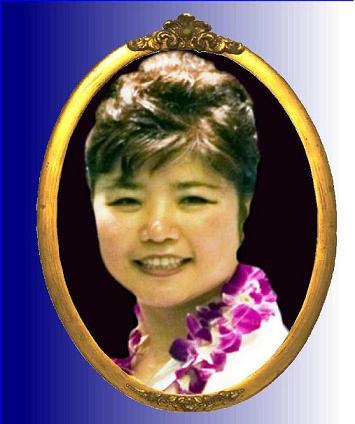 |
Sources: White House, Youtube, wikipedia,yahoo News, AP, Reuters and youtube March 22nd, 2016. Catch4all.com, Sandra Englund |
President Obama Meets with President Castro
at The Summit in Panama City
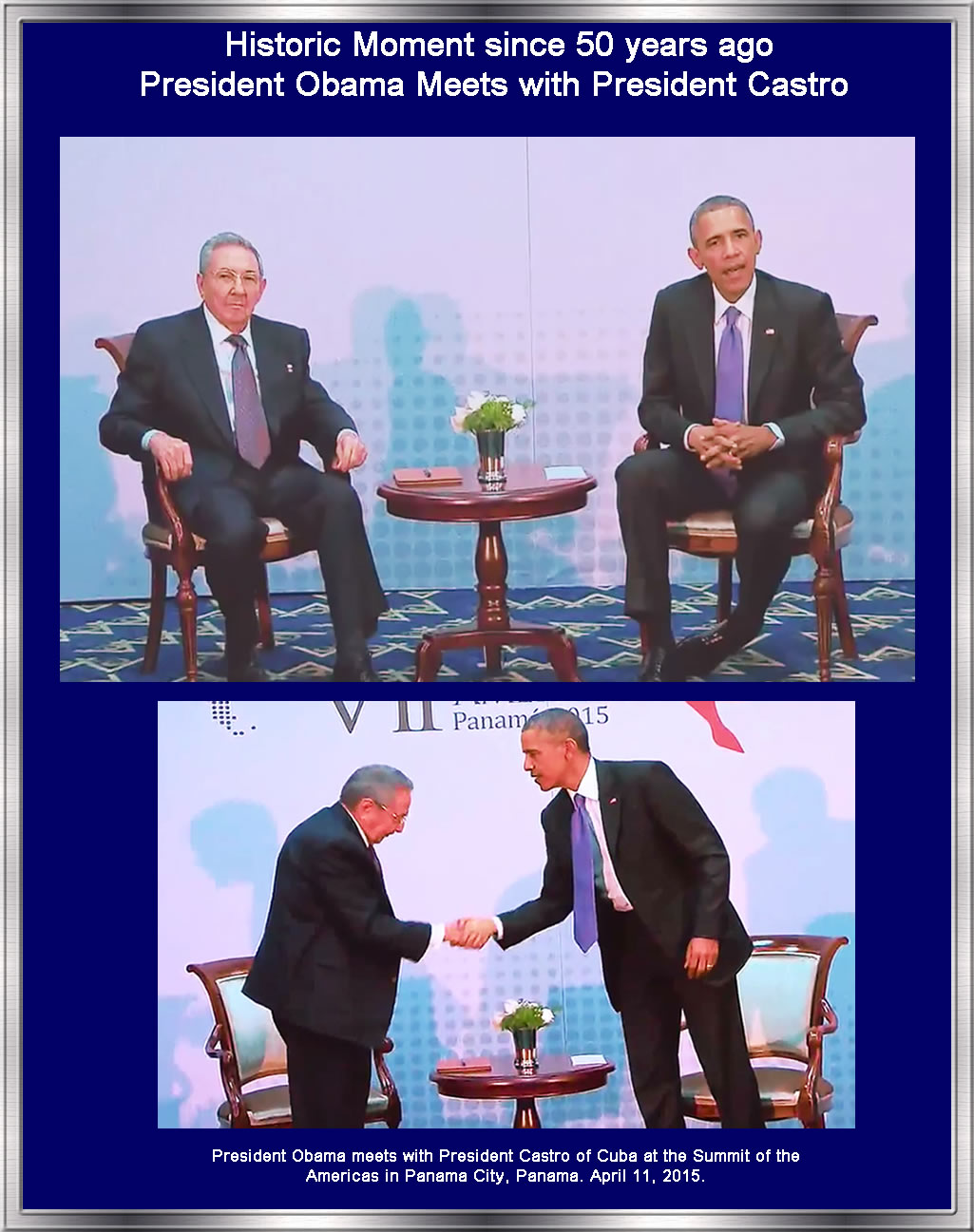
Remarks by President Obama and President Raul Castro of Cuba Before Meeting
ATLAPA Convention Center
Panama City, Panama
 |
Sources: White House, Youtube, wikipedia,CBS, and youtube. April 12, 2015 Rev. April 13, 2015 Catch4all.com, Sandra Englund |
Boeing
Outlook 2014 to 2032
Thank
you for visiting Catch4all.com. Please be sure bookmark our site. |
